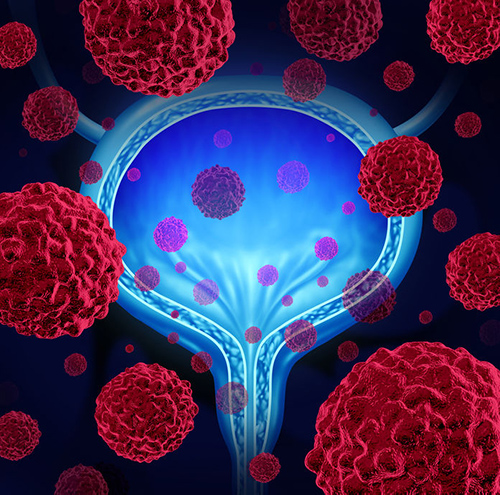Bladder Cancer Treatment In St. George, UT
Urology Associates

Bladder cancer usually begins in the inner lining of the bladder, in special cells called transitional cells. It can also grow in other parts of your urinary tract system including your kidneys, ureters, and urethra.
Risk Factors
Smoking and exposure to secondhand smoke are the strongest risk factors for bladder cancer. Cigarette smokers have a 2-3 times greater risk of developing bladder cancer than nonsmokers.
- Age is another risk factor for bladder cancer. Eighty percent of bladder cancer cases occur in individuals 60 and older. Older men have a 2-3 times higher risk than women.
- Working with toxic chemicals regularly also increases the risk for bladder cancer.
Symptoms
Painless blood in the urine is the most common sign of bladder cancer; however, blood in the urine can also indicate other conditions such as a urinary tract infection, kidney stones, or prostate problems.
Testing and Treatment
If our doctor cannot prove that another condition is causing blood in the urine, he or she will perform tests to confirm or rule out bladder cancer. These tests commonly include a study of your urine to look for cancer cells, a CT scan of the abdomen and pelvis, and a cystoscopy or an examination of the bladder with a lighted scope passed through the urethra into the bladder.
Comprehensive Urology
Services for Men & Women
Treatments
Treatment for bladder cancer depends on its stage and grade. Treatment options in St. George, UT may include a combination of:
- Transurethral Resection of Bladder Tumor (TURBT): A minimally-invasive procedure in which the tumor and other areas of concern are burned away with a special tool that is inserted through the urethra. This procedure may be used to help diagnose bladder cancer or treat it depending on the stage.
- Immunotherapy: Biological therapy drugs are inserted into your bladder through a catheter and held there for a period of time before being excreted. These therapies strengthen your immune system so your body can fight cancer cells. Immunotherapy is often used after a TURBT to prevent recurrences of bladder cancer.
- Chemotherapy: Drugs used to kill cancer cells are given through an IV or inserted directly into the bladder. Chemotherapy may be used after surgery or before surgery to shrink the tumor enough to allow for a less invasive surgery.
- Radiation Therapy: High energy x-rays are used to destroy cancer cells.
- Cystectomy: Surgery to remove a portion (partial cystectomy) or all (radical cystectomy) of the bladder. After removing your bladder, your urologist will construct a new way for urine to leave your body. We offer all forms of urinary diversions including neobladders, continent cutaneous diversions, and ileal conduits. Your urologist will help you select the urinary diversion which will best match your goals and lifestyle.
We are proud of our commitment to health care and preventive care in St. George, UT! Using only the most current techniques and technologies. At Urology Associates we've grown a reputable practice built on excellence. Schedule an appointment today for more information about our services!

